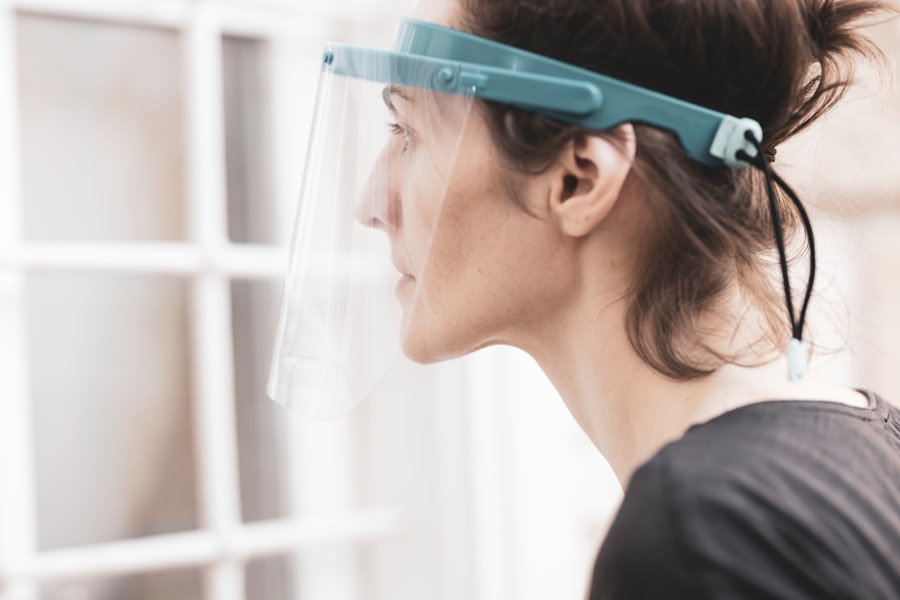In recent years, laser hair removal has emerged as a popular choice for those seeking a long-term solution to unwanted body hair. You may have heard about its effectiveness and convenience, but what exactly does this procedure entail? Unlike traditional methods such as shaving or waxing, which provide only temporary results, laser hair removal targets hair follicles with precision, aiming to reduce hair growth over time.
This innovative technique has gained traction among individuals looking for a more permanent alternative, making it a go-to option for many. As you consider this method, it’s essential to understand both its benefits and potential risks. While the allure of smooth, hair-free skin is enticing, you should also be aware of the implications that come with the procedure.
This article will delve into the mechanics of laser hair removal, the risks involved, and the precautions you should take to ensure a safe experience. By arming yourself with knowledge, you can make an informed decision about whether this treatment is right for you.
Key Takeaways
- Laser hair removal is a popular method for long-term hair reduction and uses concentrated light to target hair follicles.
- The process works by damaging the hair follicle to inhibit future hair growth, but it can also pose potential risks such as skin irritation and pigment changes.
- While the eyes are generally protected during laser hair removal, it is important to wear protective eyewear to prevent any potential damage.
- Precautions during laser hair removal include avoiding sun exposure, disclosing any medications or medical conditions to the technician, and following aftercare instructions.
- Signs of eye damage from laser hair removal may include redness, irritation, and sensitivity to light, and seeking medical attention is crucial if any symptoms arise.
How Laser Hair Removal Works
Laser hair removal operates on a straightforward yet sophisticated principle: it uses concentrated beams of light to target and destroy hair follicles. When you undergo this treatment, a trained technician directs a laser at the area of unwanted hair. The pigment in the hair absorbs the light energy, which then converts to heat.
This heat damages the follicle, inhibiting future hair growth. The process is most effective during the active growth phase of hair, which is why multiple sessions are often required for optimal results. You might be curious about the technology behind this method.
Different types of lasers are used depending on your skin type and hair color. For instance, some lasers are better suited for lighter skin tones with dark hair, while others can effectively treat darker skin. The precision of laser technology minimizes damage to surrounding skin, making it a safer option compared to other hair removal methods.
As you consider this treatment, understanding how it works can help alleviate any concerns you may have about its safety and efficacy.
Potential Risks of Laser Hair Removal
While laser hair removal is generally considered safe, it is not without its risks. As with any medical procedure, there are potential side effects that you should be aware of before proceeding. Common side effects include redness, swelling, and mild discomfort in the treated area.
These symptoms typically subside within a few hours to a few days. However, in some cases, more severe reactions can occur, such as blistering or changes in skin pigmentation. It’s crucial to discuss these risks with your practitioner to ensure you have realistic expectations. Another aspect to consider is the possibility of eye injury during the procedure.
The intense light emitted by the laser can be harmful if it comes into contact with your eyes. This risk underscores the importance of taking proper precautions during treatment. Understanding these potential risks can help you weigh the benefits against any concerns you may have about undergoing laser hair removal.
Can Laser Hair Removal Affect Your Eyes?
| Question | Answer |
|---|---|
| Can laser hair removal affect your eyes? | Yes, if proper eye protection is not used during the procedure, the laser light can potentially harm the eyes. |
| How to protect the eyes during laser hair removal? | Special goggles or eye shields should be worn to protect the eyes from the laser light. |
| What are the potential risks to the eyes? | Potential risks include damage to the cornea, retina, or other parts of the eye, leading to vision problems. |
| Is it safe to get laser hair removal near the eyes? | Laser hair removal near the eyes should only be performed by a trained professional with proper eye protection in place. |
One of the lesser-known risks associated with laser hair removal is its potential impact on your eyes. The lasers used in this procedure emit powerful light that can cause damage if not properly shielded. If you are considering treatment on areas close to your face or neck, it’s essential to be aware of this risk.
While most practitioners take precautions to protect your eyes during the procedure, accidents can happen, and it’s vital to ensure that appropriate safety measures are in place. To mitigate this risk, practitioners typically provide protective eyewear for patients during treatment. This eyewear is designed to shield your eyes from the laser light and minimize any potential harm.
However, it’s still important for you to communicate openly with your technician about any concerns you may have regarding eye safety. By being proactive and asking questions, you can help ensure that your experience is as safe as possible.
Precautions to Take During Laser Hair Removal
Taking precautions before and during your laser hair removal session can significantly enhance your safety and comfort. First and foremost, choose a reputable clinic with experienced professionals who are well-versed in laser technology. Researching reviews and asking for recommendations can help you find a qualified practitioner who prioritizes patient safety.
Before your appointment, it’s advisable to avoid sun exposure and tanning products for at least two weeks. Sunburned or tanned skin can increase the risk of complications during treatment. Additionally, inform your technician about any medications or skin products you are using, as certain substances can affect how your skin reacts to the laser.
By taking these steps, you can help ensure that your experience is both effective and safe.
Signs of Eye Damage from Laser Hair Removal

While rare, eye damage from laser hair removal can occur if proper precautions are not taken. It’s essential for you to be aware of the signs that may indicate an issue following your treatment. Symptoms such as blurred vision, persistent eye pain, or unusual sensitivity to light should not be ignored.
If you experience any of these symptoms after undergoing laser hair removal, it’s crucial to seek medical attention promptly. In some cases, damage may not be immediately apparent. You might notice changes in your vision or discomfort days or even weeks after the procedure.
Being vigilant about your eye health is vital; if something feels off or different from your usual state, don’t hesitate to consult a healthcare professional. Early intervention can make a significant difference in addressing any potential issues.
Seeking Medical Attention for Eye Damage
If you suspect that you have sustained eye damage from laser hair removal, seeking medical attention should be your top priority. Time is of the essence when it comes to addressing potential injuries to your eyes. An eye care professional will conduct a thorough examination and determine the extent of any damage.
Depending on their findings, they may recommend treatments ranging from medication to more advanced interventions. It’s also important to keep records of your treatment sessions and any symptoms you experience afterward. This information can be invaluable for healthcare providers as they assess your situation and develop an appropriate treatment plan.
Remember that while complications are rare, being proactive about your health is always a wise approach.
Conclusion and Recommendations for Safe Laser Hair Removal
In conclusion, laser hair removal offers an effective solution for those looking to eliminate unwanted hair with long-lasting results. However, as with any cosmetic procedure, it’s essential to approach it with caution and awareness of potential risks—especially concerning eye safety. By understanding how laser hair removal works and taking necessary precautions, you can significantly reduce the likelihood of complications.
Don’t hesitate to ask questions about their experience and the measures they take to protect your eyes during the procedure. By being informed and proactive, you can enjoy the benefits of laser hair removal while minimizing any associated risks.
Ultimately, knowledge is power; equipping yourself with information will empower you to make decisions that align with your health and beauty goals.
Laser hair removal is a popular method for achieving smooth, hair-free skin.
According to a recent article on inlaserhairremoval.com, it is important to protect your eyes during laser hair removal treatments to avoid any potential damage. The article provides helpful tips and information on how to ensure the safety of your eyes during the procedure.
FAQs
What is laser hair removal?
Laser hair removal is a cosmetic procedure that uses a concentrated beam of light (laser) to remove unwanted hair. The laser targets the pigment in the hair follicles, damaging them and inhibiting future hair growth.
Can laser hair removal affect the eyes?
Yes, laser hair removal can affect the eyes if proper precautions are not taken. The intense light from the laser can potentially cause damage to the eyes if they are not adequately protected during the procedure.
How can the eyes be protected during laser hair removal?
To protect the eyes during laser hair removal, both the patient and the practitioner should wear appropriate eye protection. This typically involves wearing special goggles that are designed to shield the eyes from the laser light.
What are the potential risks to the eyes during laser hair removal?
The potential risks to the eyes during laser hair removal include damage to the cornea, retina, or other parts of the eye from exposure to the intense laser light. This can result in vision problems or even permanent eye damage if proper precautions are not taken.
Are there any specific eye conditions that may increase the risk of eye damage during laser hair removal?
Yes, individuals with certain eye conditions, such as retinal disorders or a history of eye surgery, may be at an increased risk of eye damage during laser hair removal. It is important for individuals with pre-existing eye conditions to discuss their medical history with the practitioner before undergoing the procedure.







